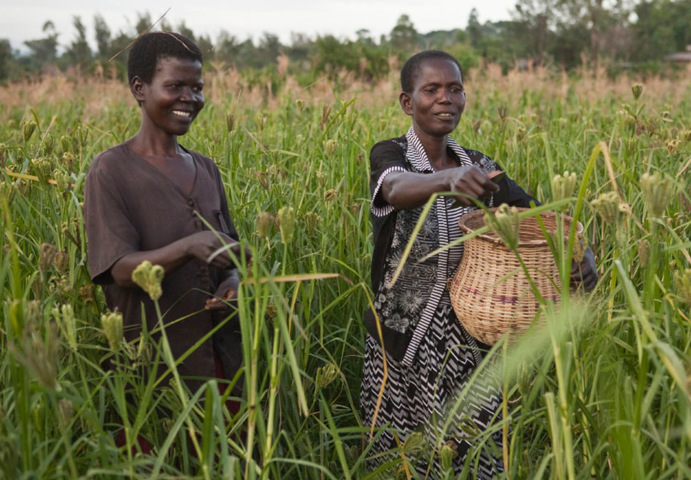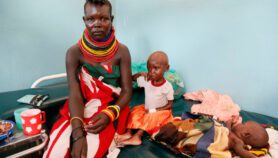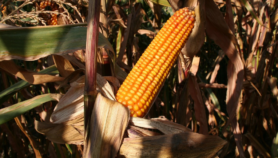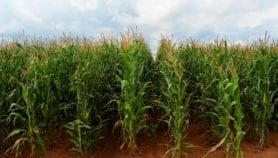By: Dorcas Odhiambo
Send to a friend
The details you provide on this page will not be used to send unsolicited email, and will not be sold to a 3rd party. See privacy policy.
[NAIROBI] Almost 730,000 smallholder farmers in Ghana, Kenya and Tanzania could soon benefit from a new, US$15.5 million programme that aims to improve their productivity and incomes.
The programme, which involves partnership between Kenya-headquartered Alliance for a Green Revolution in Africa (AGRA) and The MasterCard Foundation in Canada, will promote investments in post-harvest handling (PHH) technologies and access to storage facilities to help uplift farmers from poverty.
“Through small and medium enterprises, farmers will also gain access to cold storage facilities, cleaning and drying machines and licensed warehouses as well as processing technologies.”
Agnes Kalibata, AGRA
AGRA and The MasterCard Foundation announced the new programme last month (5 November).
“Through small and medium enterprises, farmers will also gain access to cold storage facilities, cleaning and drying machines and licensed warehouses as well as processing technologies such as cassava chippers [and] graters,” says Agnes Kalibata, AGRA’s president.
Access to these technologies, Kalibata tells SciDev.Net, will help farmers reduce post-harvest losses from 30 to five per cent thereby increasing sellable volumes and farmers’ income.
“In addition, we have recently formed a partnership with PHH solutions providers such as cocoons and metal silos manufacturers and distributors to address post-harvest issues resulting from Tanzania bumper harvest,” she adds.
The five-year partnership, she explains, will have AGRA as a grant-making institution to stakeholders such as agricultural value chain actors for capacity building and development and implementation of effective, robust and low-cost information and communication technology (ICT)-based delivery mechanisms.
“We believe that making it possible for smallholder farmers and small to medium-sized enterprises to access credit, savings, and insurance services, and helping them connect to strong market value chains, is critical to driving transformation of the agricultural sector in Africa,” said Ann Miles, director of financial inclusion at The MasterCard Foundation, in a statement. “This initiative should result in real change to the lives of many people in these three countries.”
AGRA will also leverage its seed systems, market access, farmer organisation, policy and advocacy and innovative finance to enhance the productivity, incomes and food security of smallholder farmers, says Kalibata.
The project will promote integrated soil fertility management approach through the use of both inorganic and organic fertilisers, including using manure and nitrogen-fixing plants.
Kalibata adds that farmers and other value chain actors will be trained in financial literacy, financial management, and use of ICT tools. They will also be encouraged to form credit-worthy groups to access financial services.
Paul Kimani, a plant breeder with Kenya’s University of Nairobi says, welcomes the programme. “Estimates indicate about 40 to 50 per cent of the produce is lost through lack of better storage facilities. Losses could be higher for produce such as vegetables that are very perishable and have very short shelf life,” he tells SciDev.Net.
According to Kimani to a large extent, technology to reduce post-harvest losses is available but “there is limited utilisation either because farmers are not aware of the technological options available or they are too expensive”.
“This will only make sense if there is surplus of market demanded products. I would start at the market place, identify exactly what the market size and location is and specifications for the products and other requirements then proceed to ensure appropriate production technologies,” he says.
Kimani adds that it would be important to engage smallholder farmers to help identify the problems they face before implementing the initiative.
This article has been produced by SciDev.Net's Sub-Saharan Africa desk.














